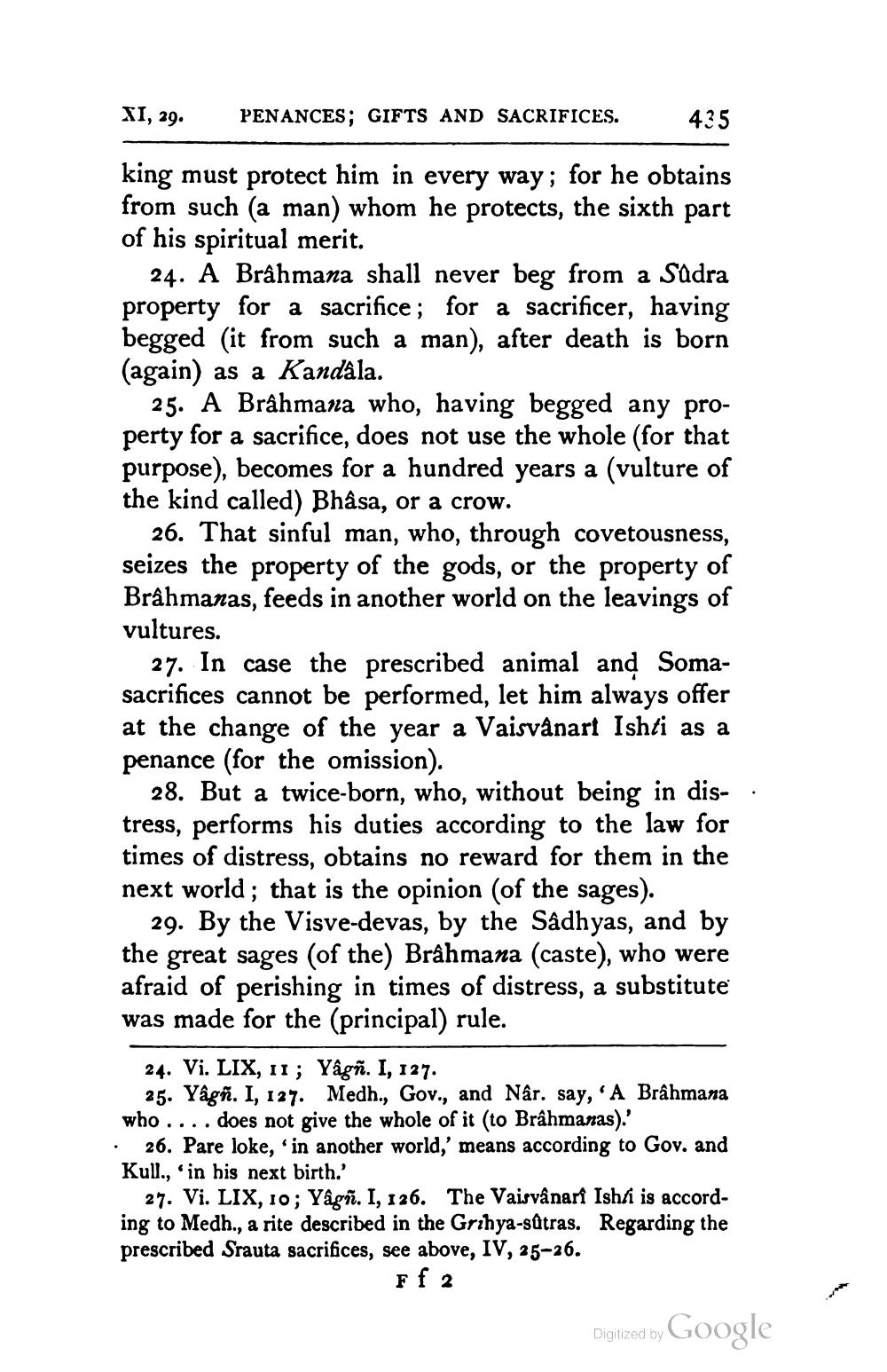________________
XI, 29.
PENANCES; GIFTS AND SACRIFICES.
435
king must protect him in every way; for he obtains from such (a man) whom he protects, the sixth part of his spiritual merit.
24. A Brâhmana shall never beg from a Sadra property for a sacrifice; for a sacrificer, having begged (it from such a man), after death is born (again) as a Kandala.
25. A Brahmana who, having begged any property for a sacrifice, does not use the whole (for that purpose), becomes for a hundred years a (vulture of the kind called) Bhâsa, or a crow.
26. That sinful man, who, through covetousness, seizes the property of the gods, or the property of Brâhmanas, feeds in another world on the leavings of vultures.
27. In case the prescribed animal and Somasacrifices cannot be performed, let him always offer at the change of the year a Vaisvånart Ishti as a penance (for the omission).
28. But a twice-born, who, without being in distress, performs his duties according to the law for times of distress, obtains no reward for them in the next world ; that is the opinion (of the sages).
29. By the Visve-devas, by the Sâdhyas, and by the great sages (of the) Brâhmana (caste), who were afraid of perishing in times of distress, a substitute was made for the (principal) rule.
24. Vi. LIX, 11 ; Yâgñ. I, 127.
25. Yâgñ. I, 127. Medh., Gov., and Nár. say, 'A Brâhmana who .... does not give the whole of it (to Brâhmanas).' • 26. Pare loke, in another world,' means according to Gov. and Kull., in his next birth.'
27. Vi. LIX, 10; Yagn. I, 126. The Vaisvânari Ishi is according to Medh., a rite described in the Grihya-sútras. Regarding the prescribed Srauta sacrifices, see above, IV, 25-26.
Ff 2
Digitized by Digitized by Google




